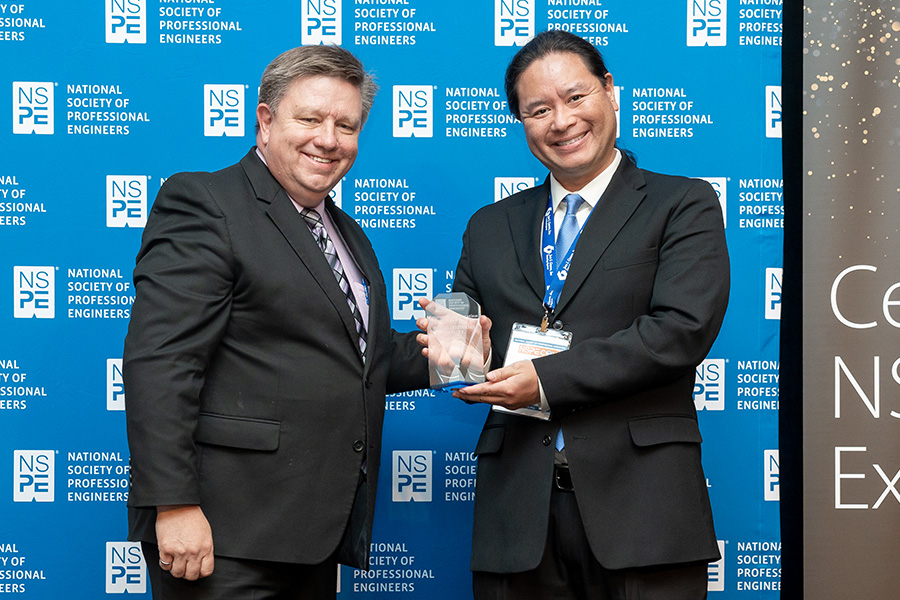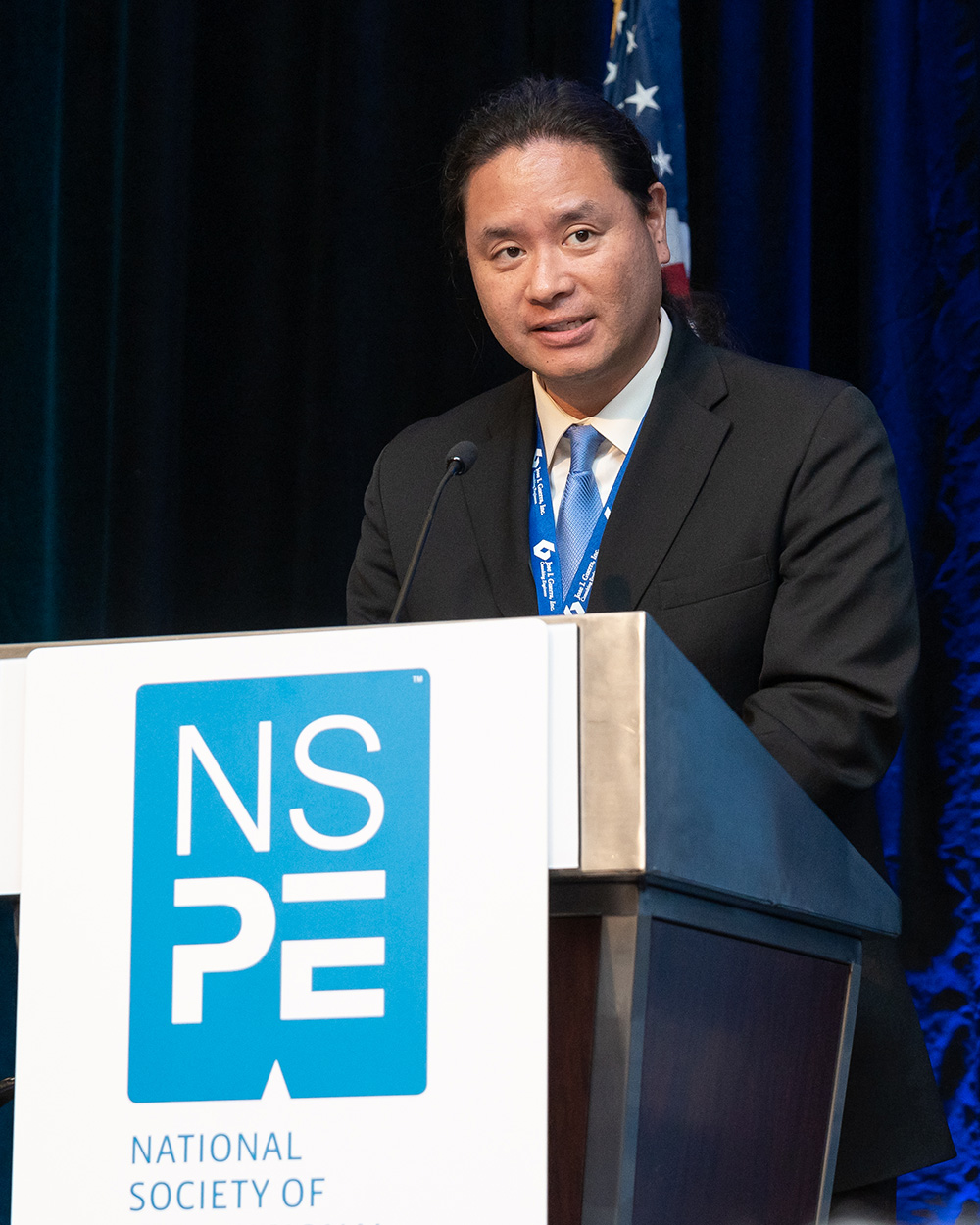Waterloo Tsutsui earns NSPE Engineering Education Excellence Award
| Author: | Alan Cesar |
|---|

As a lifelong learner himself, Waterloo Tsutsui (PhD AAE ’17) knows the value of a good instructor. That’s why he finds it a deep and humbling honor to receive the Engineering Education Excellence Award from the National Society of Professional Engineers (NSPE).
This national award, granted annually, recognizes an engineering educator from a base of half a million professional engineers for their “demonstrated ability to link engineering education with professional practice.” He was honored in person at NSPECon 2023 in Louisville, Kentucky, on August 3.
Tsutsui, a senior research associate in AAE, teaches two courses each in aeromechanics and structural analysis. In being awarded for his teaching approach, he credits AAE for providing the resources for success.
“The knowledge that my efforts have had a positive impact on the learning experiences of students fills me with immense joy and satisfaction. I extend my heartfelt appreciation to the leaders of the School of Aeronautics and Astronautics and the College of Engineering at Purdue University for their unwavering commitment to fostering an exceptional teaching and learning environment.”

He believes that part of the reason for his success lies in his ongoing connection with the learning process. “I recognize the significance of transforming abstract concepts into tangible and accessible forms for students,” he says. “Throughout my academic journey, I have developed a deep curiosity about the most effective methods for facilitating student learning.”
That curiosity led him to a technique of tailoring the learning process for students based on their zone of proximal development and their background knowledge levels for his courses. He classifies students based on their preliminary knowledge of the course material and their problem-solving skills. He provides instruction to those groups of students based on their needs: giving additional guidance and alternate approaches to the material for those who need it, and providing deeper, thought-provoking questions to those who are more advanced.
Tsutsui even uses these methods on himself as he continues his lifelong quest for knowledge — currently in the system-of-systems engineering field with professor Dan DeLaurentis at the Center for Integrated Systems in Aerospace (CISA). “It is immensely gratifying to draw upon my background as an engineering educator to scaffold my own knowledge, providing me with the confidence to embrace a new field of study,” he says. “In this pursuit, I employ many of the same techniques I used with my students.”
